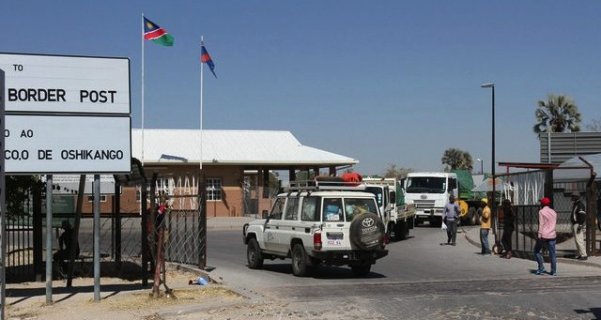Thus, according to Angop, security at the country's borders will be strengthened, within a three-year timeframe, with the aforementioned system, which will be installed throughout the country, in order to make air, land and river entry points inviolable.
As part of the signing of the term of assignment for the implementation of the biometric system for controlling migratory traffic, under the responsibility of the aforementioned consortium, the Secretary of State for the Interior, Arnaldo Manuel Carlos, considered that the project will bring "greater effectiveness and efficiency in the protection and control" of the borders.
"The implementation of this project will make the protection and control of our borders more effective and efficient, with a view to preventing and combating illegal immigration, as well as managing migratory flows", said the Secretary of State, who also pointed out that the ministry is committed to finding better ways and changes to adopt strategies that contribute to strengthening security measures on the country's borders.
Robert Sczepankowisk, chairman of the Board of Directors (PCA) of T4B, quoted by Angop, took the opportunity to thank the government for the trust placed in the Polish company to build this "important infrastructure", which will enable an increase in taxes paid at the borders.
"I deeply believe that we will also build a new bridge that will unite the two countries and the two peoples in other future projects of common interest," said the CEO of the company, which began feasibility studies last year.
The execution of this project, valued at 112 million dollars, foresees the construction, near Km 30, of a control center for the entire system, at the level of all the provinces of the country.
Its monitoring and operation will be the responsibility of the Migration and Foreigners Service, together with the Integrated Public Security Center, allowing the identification of a person and their profile in real time, since this system will make it possible to collect or detect biometric data that recognizes a person, through fingerprints, easy recognition, among others.
Thus, according to Angop, this technological tool aims to improve the effectiveness of controlling people entering and leaving the country through airports, ports and land border posts.
This matter was brought up again this Wednesday, in a hearing with the Minister of the Interior, Manuel Homem.
"The implementation of the biometric system for controlling migratory traffic, a technological platform that will modernize border security throughout the national territory, and the strengthening of institutional cooperation guided the hearing granted by the Minister of the Interior, Manuel Gomes da Conceição Homem, to the heads of the Dolinvest and T4B Consortium, of the Republic of Poland, headed by the PCAs Robert Sczepankowski, of T4B Splóka Z.o.o, and Tomasz Dowbor, of the Boa Vida Group, this Wednesday", says a note from the ministry, to which VerAngola had access.
Furthermore, this Wednesday, Manuel Homem also inaugurated a police station. "As part of the ongoing commitment to guarantee peace, order and the security of citizens, the Minister of the Interior, Manuel Gomes da Conceição Homem, proceeded, this Wednesday, February 26, to the inauguration of the Calemba 2 Police Station, located on Avenida Sérgio Luther Rescova, an infrastructure that will ensure the protection of around 70 thousand citizens in the operational territory of Kilamba Kiaxi", points out the ministry.







